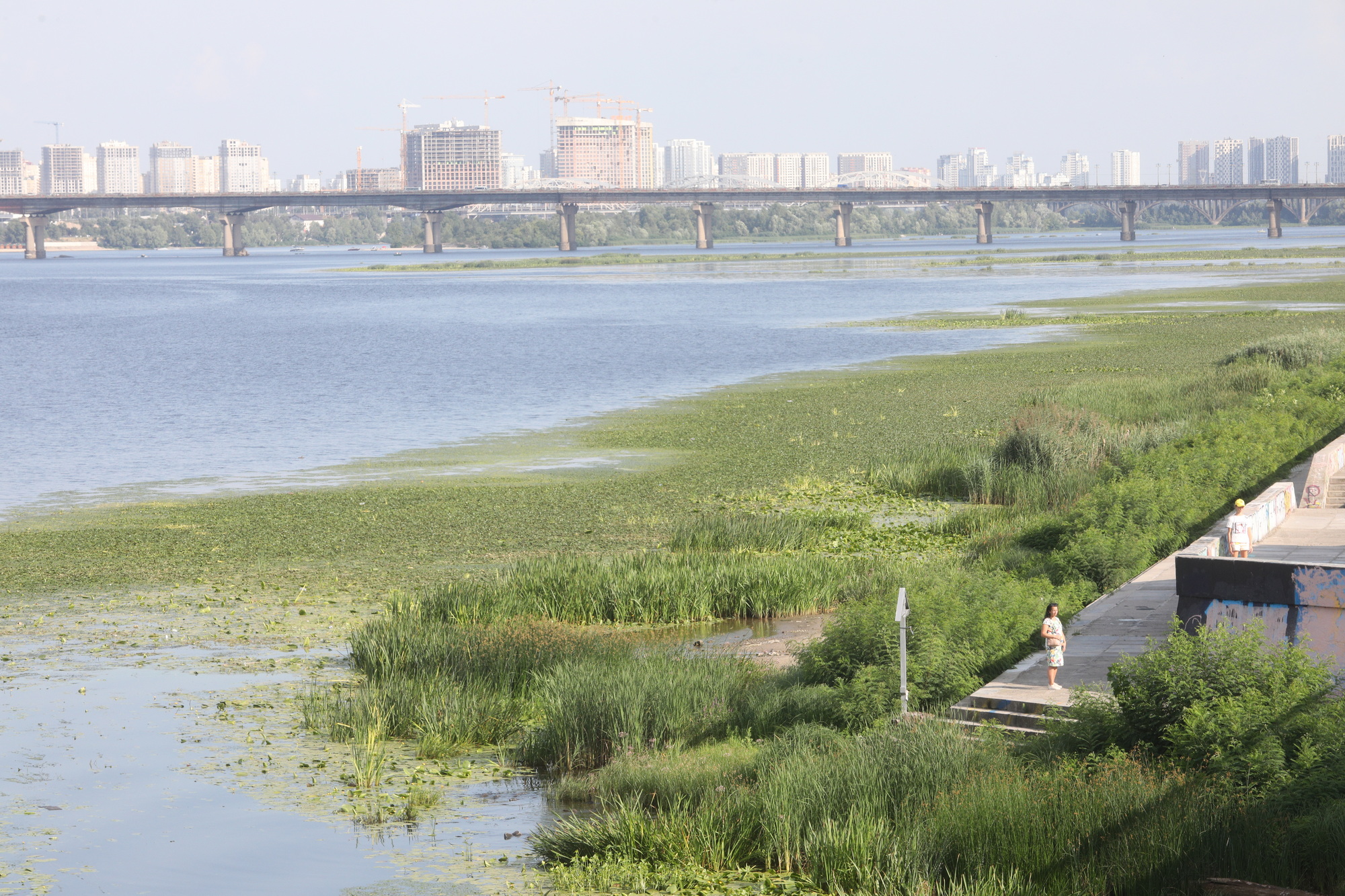Ukraine's longest river, Dnipro, might turn into a desert in 300 years if nothing is done to curb its pollution, according to the State Ecological Inspectorate.
The agency's Dec. 22 announcement follows a study that discovered 161 different chemical pollutants in the Dnipro in June. Then, the parliament’s Accounting Chamber said that the river is on the verge of an ecological catastrophe.
The Dnipro flows through Russia, Belarus and Ukraine, and reaches the Black Sea in the south of Ukraine. The 2,200 kilometer-long river is the fourth-longest river in Europe and divides Kyiv into its left and right banks.
The river is critical to the Ukrainian economy, which relies on it for transporting goods via the Dnipro-Bug Canal and creating power with its various hydroelectric stations. The river also supports numerous ecosystems and irrigates land in Ukraine’s provinces.
Water analyzed from the river throughout 2021 found excessive levels of nitrates, iron, phosphates, sulfates, and other harmful substances.
According to the inspectorate, more than $4,000 worth of damage is inflicted on the body of water every day due to violations of Ukraine’s environmental legislation.
The inspectorate identified the largest polluter of the Dnipro as Kyivvodokanal, Kyiv’s fresh water and sewage management company. Each year, Kyivvodokanal pollutes the river with around 300 million cubic meters of runoff, which leads to a buildup of harmful chemicals in the waters.
This pollution has led to algal blooming, a process whereby phytoplankton become suspended in the water and unable to resist currents. This leads waters to become green and thick with alga, and toxic.
This summer, Kyiv authorities banned residents from swimming at all public beaches including 14 official public beaches throughout the Dnipro basin over healthcare concerns amid high temperatures and water blooming.
The inspectorate claims that if nothing is done to curb pollution, the Dnipro will turn into a “desert” within the next 300 years, citing research conducted by scientists from the National Academy of Sciences of Ukraine.
The inspectorate called for several measures to save the river.
This includes a proposal to increase the fines for damages to the environment that are part of a bill it drafted parliament to consider.
The inspectorate also called for a tightening of regulations on inspections, which increase fines for refusal to allow inspectors to investigate businesses.
The state has also vowed to increase monitoring of the water quality in the Dnipro River. In 2022, the inspectorate will increase the frequency of inspections and pursue industrial violators.













